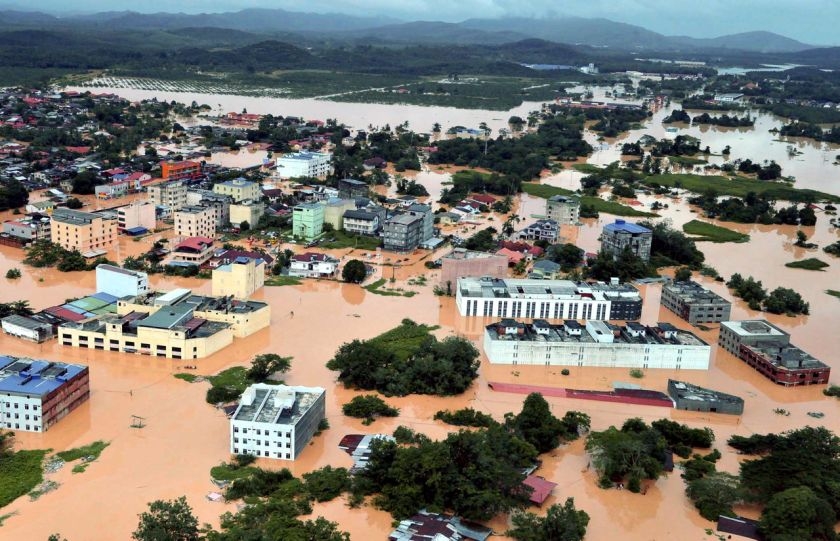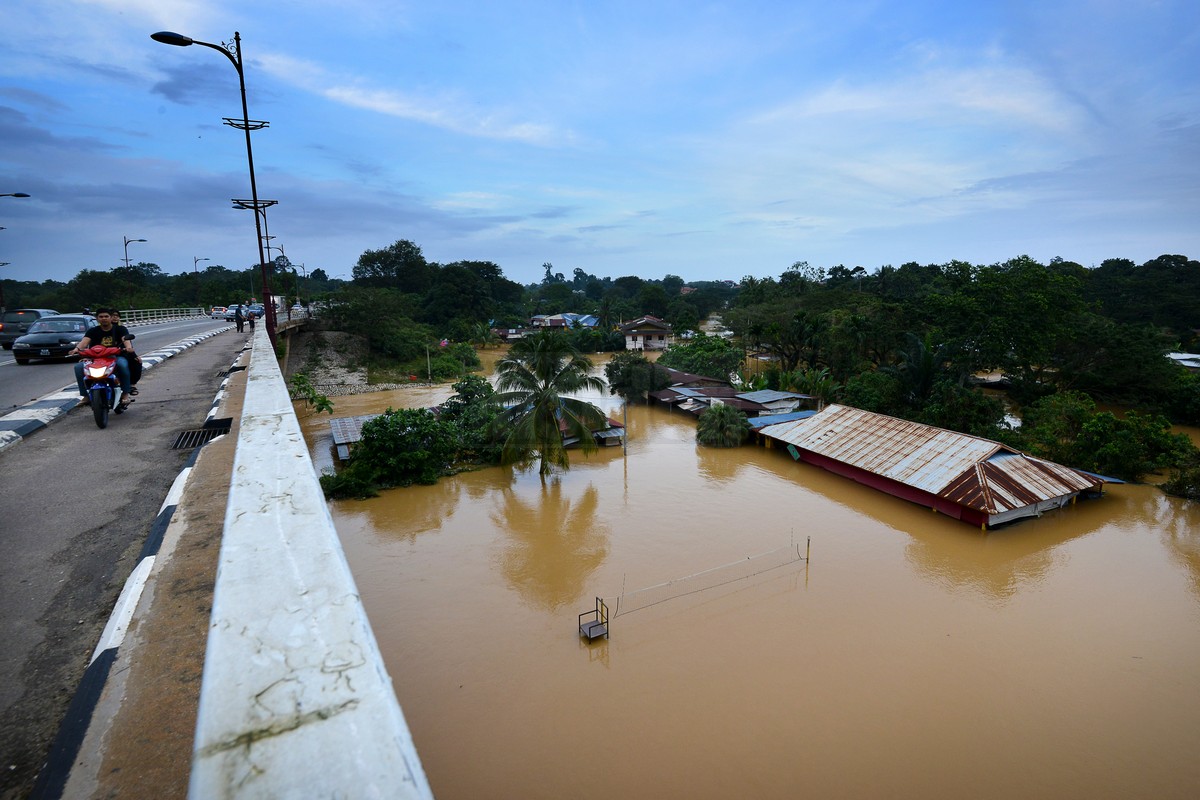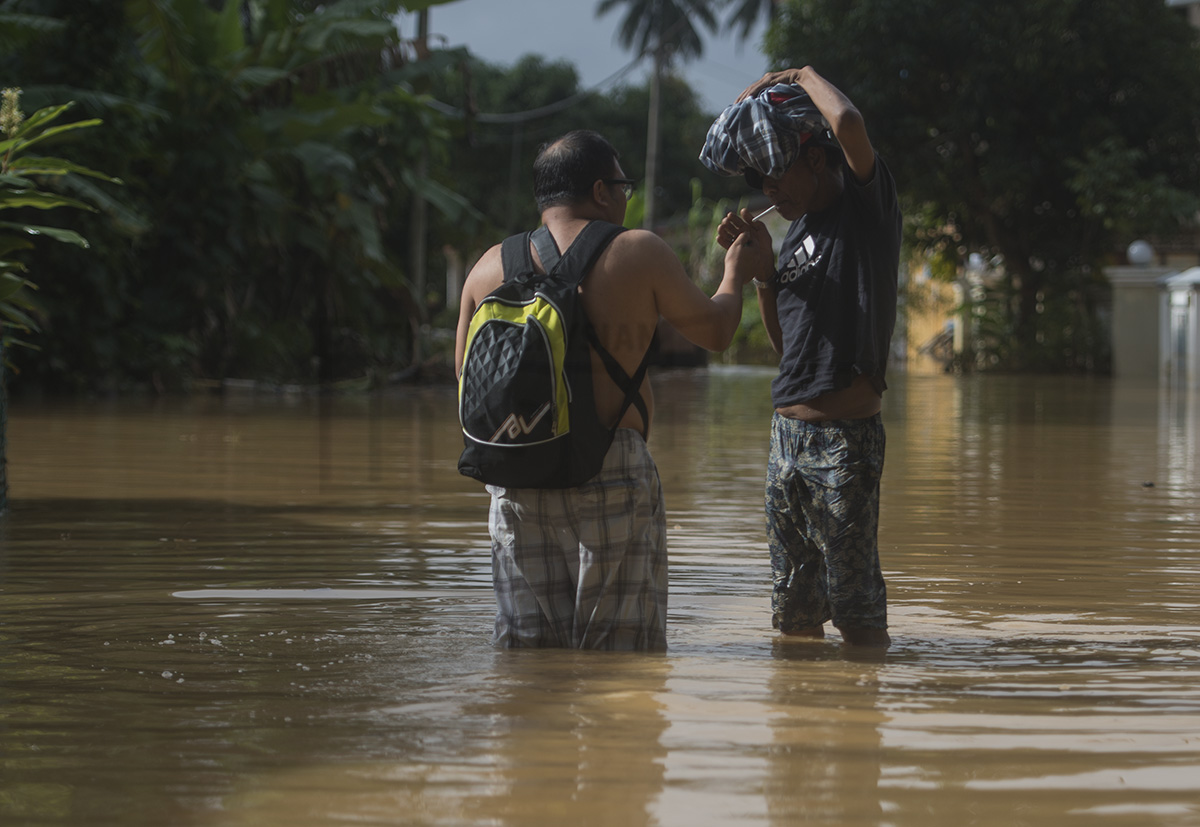By Ralvin Manikam
Is the government’s hesitance in declaring a state of emergency merely an act of denial?
As the east coast states grapple with rebuilding their lives in the aftermath of the nation’s worst floods in 33 years, the pressure mounts to declare a state of emergency which would hasten the recovery process.
But what stays the hand of the government in making the tough decision to place flood relief work as its top priority?
Last Tuesday, the National Security Council admitted that there was a complete collapse in response to the devastating floods that hit five East Coast states in Peninsular Malaysia. As a result, Pahang, Perak, Johor, Terrengganu, and Kelantan, have suffered damages of almost RM1 billion and more than 230,000 victims displaced. The death toll is now at 21.
Dubbed the “worst floods ever in Kelantan” by the NSC, the aftermath of the floods has led to other problems like looting and disease — the latest target being Prime Minister Najib Abdul Razak himself.
According to reports, the Prime Minister was infected by the E-Coli bacteria after visits to flood hit areas. E Coli can cause diarrhoea, and rarely, kidney failure and death. He would now be monitoring the flood situation from home, according to reports.
Not as lucky however are the other 1220 people who have contracted infections in the wake of the flood, and just in Pahang alone, which is not as badly affected by the floods as Kelantan. They do not possess the luxury of resting at their homes, since it is their homes which have been devastated by the floods.
Be that as it may, the government has refused to declare a state of emergency to combat further fears of social unrest and the spread of disease.
Research for Social Advancement (Refsa) senior fellow Lam Choong Wah believes that the federal government’s stubbornness in this matter is to “save face”.
“The government is embarrassed to admit its failure to prepare for the floods, which pays us a visit every single year,” he told The Rocket briefly.
Declaring a state of emergency
However, what does a state of emergency really mean?
A country usually declares a state of emergency in the event of war, natural disaster or social unrest, so that government forces can be mobilised where existing response systems have failed.
A state of emergency would surrender full control of the state to the Prime Minister and the government — and by extension its machinery — to expedite cleaning, relocating of victims, and restoring power and water in the affected states.
Declaring an emergency can only be done by the Agong, who would act on this matter on the advice of the Prime Minister.
One of the most crucial reasons to declare a state of emergency is that it would allow the federal government to mobilise aid and forces, without breaching constitutional limits meant to prevent the government from interfering with state issues that come under state jurisdiction.
This means that the government would be able to mobilise its military, reserve troops, and its fire rescue department to clean up the flood-hit areas, move people into shelters, and solve the problems of power outages and clean water supply much quicker then without government presence; and they can do so without undergoing all sorts of bureaucratic red-tape that often ensnare the State-Federal relationship.
Failure to declare an emergency slows down relief efforts, something which Kelantan state authorities have said would happen. The state, at the current pace of clean-up efforts, would only fully recover only after six months at best. However, opposition leaders, like Gelang Patah MP Lim Kit Siang say that this is too long.
“Whether for Kelantan, Terengganu, Pahang, Perak or any state for that matter, the period for the full recovery from the devastation of the floods catastrophe should be cut down from – at least six months – to two months, and this is why a state of emergency for the flood-stricken states should declared, to deal firstly with the floods disaster management, mitigation and relief during the floods catastrophe, and secondly, the post-flood challenges and dangers,” he said.
To the DAP, the federal government needs to urgently step in and solve the crisis like other nations have done when faced with floods.
In the 2013 Alberta floods in Canada for instance, the government had issued a state of emergency in the nation’s worst floods that left 100,000 people displaced and four dead.
DAP leaders urge for action
With the NSC saying that their response system had indeed failed, opposition leaders such as Gelang Patah MP Lim Kit Siang, Penang chief minister Lim Guan Eng, and Petaling Jaya Utara MP Tony Pua have urged the government to declare a state of emergency. Najib’s response, however, is that the declaration would absolve insurance companies from compensating for damages.
Baffled by the answer, Pua had said that insurance companies are not liable to pay for damages in the event of a natural disaster.
“Vehicles damaged by the massive flood would not be indemnified anyway (unless additional flood cover was purchased), regardless of whether a state of emergency is declared!” Pua said.
Apart from Pua’s rebuttal, the General Insurance Association of Malaysia (PIAM) had also given their assurance that insurance firms would cover flood claims if natural disasters are included in their general insurance coverage.
Deputy Prime Minister Muhyiddin Yassin said that the government would only be obliged to declare an emergency if there were total power and water outages. Muhyiddin, like his superior was slammed for being ignorant of the situation in Kelantan, where power and water supply had already been non – existent for quite some time.
From the responses by Najib and Muhyiddin, it does seem like the federal government is willing to resort to all kinds of excuses to avoid a state of emergency; a move that the DAP thinks is necessary to hasten rebuilding the lives of the flood victims.
Urgent need for Najib to step in
Even if the total breakdown of the NSC’s response efforts and the Kelantan State government’s failure to prepare for the disaster are not sound enough factors for a state of emergency, the spread of disease and social unrest should make the government change its mind.
DAP MPs Anthony Loke (Seremban) and Liew Chin Tong (Kluang) had previously raised concerns of looting and the spread of disease as some of the potential issues that could spiral out of proportion if the government remains unmoved.
Urging the government to declare a state of emergency in Kuala Krai, Kelantan, they said that the coastal floods might facilitate a potential outbreak of disease.
“Garbage is mostly not collected and flooded areas have not yet been cleaned. The stench of dead animals is commonplace,” they said, describing the scenes they witnessed in Kelantan.
Liew and Loke had also said that the government needed to step in, to ensure food and essential items are distributed to all in an orderly manner.
Without functioning shops or stalls, they said that social unrest cannot be ruled out.
Lim had cited incidences of flooding along Gaza Strip and Central Java, West Java and Aceh, Indonesia where the government did not have to wait for“hundreds of thousands of flood victims before an emergency was declared”.
The Philippines, when faced with Typhoon Haiyan in November 2013 had declared a state of emergency, enabling the mobilisation of aid. The government also placed police officers and the military in the some areas before the storm, while classes were cancelled and people who lived in areas prone to landslide were ordered to evacuate. Although over six thousand had died following the storm, Helen Clark, administrator of the United Nations Development Programme said that many more lives could have been lost if the government were not as quick and effective when dealing with the crisis.
Despite repeated calls for Najib to take charge of our nations crisis, it might take longer before the federal government decides to act promptly – even if lives are at stake. -The Rocket






